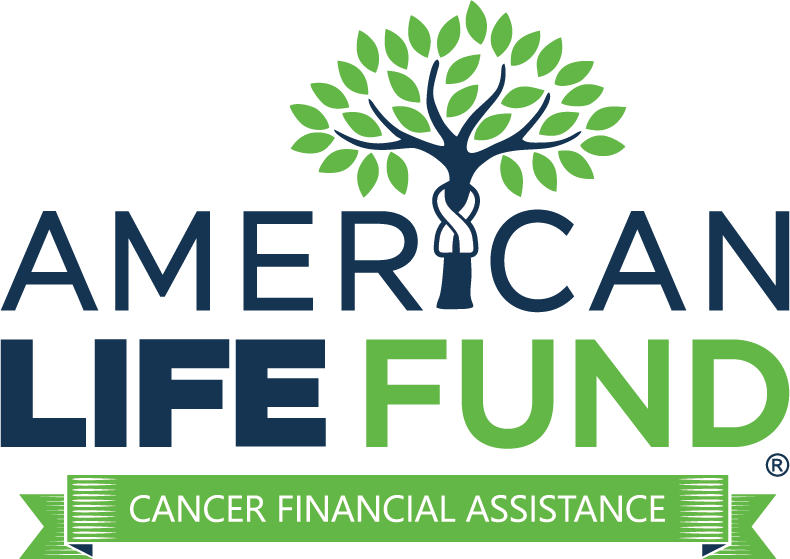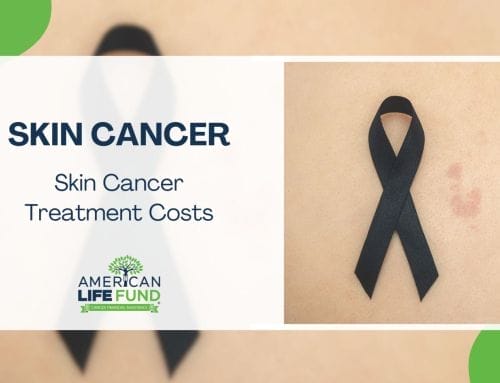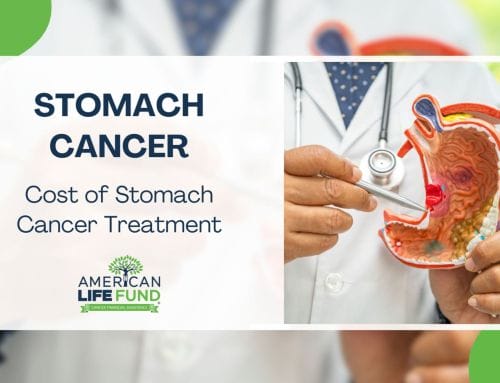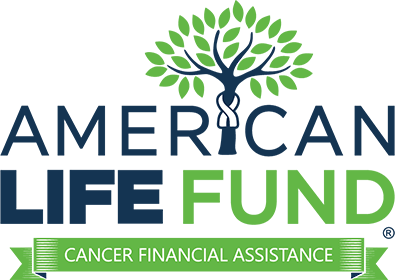People with Myelodysplastic Syndromes (MDS) often deal with high medical costs from treatments like chemotherapy and bone marrow transplants. These expenses can be overwhelming, especially if the illness makes it hard for them to work and earn money. There are several ways to get financial help. Patients can use their life insurance policies to get cash through viatical settlements, apply for special grants tailored to MDS, or find general cancer financial support programs. Fundraising events and online campaigns can also raise money. Options for financial assistance are available to help alleviate the burden and allow patients to focus on their health and well-being. Additionally, prescription assistance programs can help get medications at a lower cost or even for free.
Living with a rare blood disorder such as Myelodysplastic Syndromes (MDS) can be difficult. Beyond the physical and emotional challenges, individuals with MDS also face financial hardships that can further complicate their situation.
The cost of treatments, medications, and regular doctor visits can add up quickly, leaving little room for individuals and their families to manage the expenses independently. In this blog post, we’ll explore some of the Myelodysplastic Syndromes Financial assistance available, so you can feel more informed and empowered on your journey.
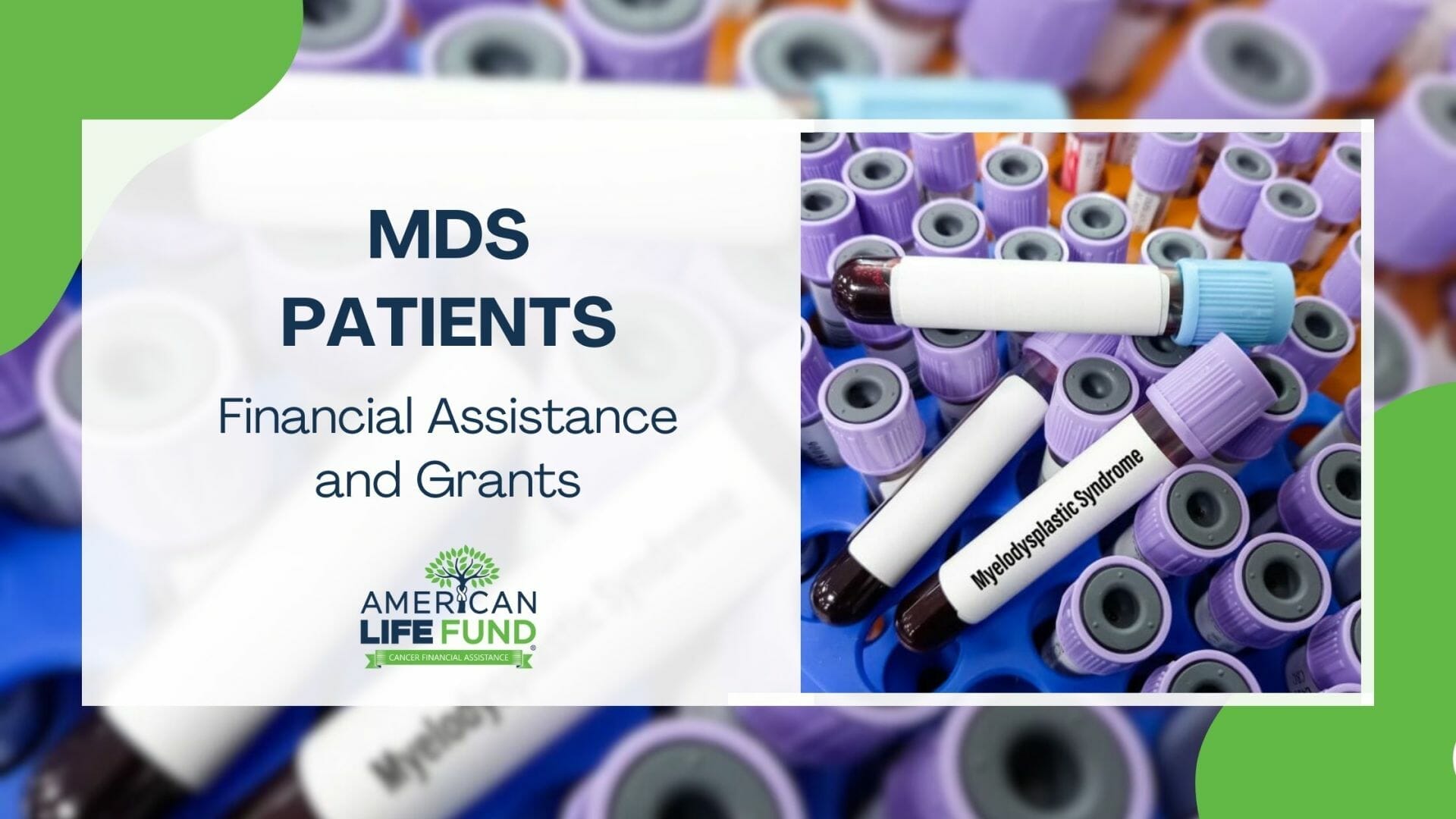
What Myelodysplastic Syndrome Patients Can Expect Financially
For patients diagnosed with Myelodysplastic Syndromes (MDS), managing the financial impact of this rare blood disorder can be challenging. The cost of treatment and care can vary depending on the severity of the disease, the type of treatment needed, and insurance coverage.
The cost of MDS treatment can be high. It may include chemotherapy, blood transfusions, bone marrow transplants, and ongoing monitoring and testing. The cost of managing side effects and complications such as infections and anemia can also add to the overall financial burden.
Many patients may also face lost wages or reduced work hours due to MDS’s physical and emotional toll. Patients need to be aware of the potential financial challenges of MDS so they can plan and prepare for the best possible outcomes.
Myelodysplastic Syndromes Financial Assistance For Patients Type #1: Your Life Insurance Policy Pays YOU (Through a Viatical Settlement)
Even with government programs like Medicare and Medicaid in the United States, you may still be responsible for high out-of-pocket costs if you undergo cancer treatments.
Your life insurance policy could be an asset you were unaware you had. It allows policyholders to sell their coverage for a lump-sum cash payment, also known as a viatical settlement. These funds are tax-free with no strings attached, so you can use them however you choose.
You can pay for your medical expenses and living costs, pay off debts or go on that dream vacation you’ve always wanted. Individuals may receive up to 70% of their life insurance policy with a viatical settlement in as little as two weeks!
Viatical settlements are for life insurance policyholders who have a life-threatening illness. Here’s how it works:
- Individuals with life insurance policies can enter contracts with third-party purchasers to sell their life insurance policies.
- They will receive a lump-sum payment that is more than the cash value of the life insurance policy but less than the death benefit.
- The life settlement company assumes the monthly premium payments and receives the death benefit when the insured passes.
American Life Fund assists thousands of patients who want to sell their life insurance policies to relieve the financial strain of treatments and allow you to devote more time to the things that matter. American Life Fund can provide a quick cash offer for your life insurance policy through our simple application process.

Myelodysplastic Syndromes Financial Assistance For Patients Type #2: Myelodysplastic Syndrome-Specific Financial Grants & General Cancer Financial Assistance
Financial assistance for Myelodysplastic Syndrome (MDS) patients can come in different forms. MDS-specific financial grants and general cancer financial assistance programs are two options available to help ease the financial burden of MDS treatment.
MDS-Specific Financial Grants:
- The MDS Foundation: Offers a Patient Financial Assistance Program, which provides eligible patients with grants of up to $1,500 to help with medical expenses, transportation costs, and other related expenses.
- The Leukemia & Lymphoma Society: Offers a Copay Assistance Program, which helps eligible patients with out-of-pocket costs related to MDS treatment, including chemotherapy, radiation therapy, and medication costs.
General Cancer Financial Assistance Programs:
- CancerCare: Provides limited financial assistance for cancer-related costs, including transportation, home care, and child care. They also offer counseling and support services.
- Patient Access Network Foundation: Offers financial assistance for medication copays, insurance premiums, and deductibles. Eligible patients can receive up to $7,500 per year.
- HealthWell Foundation: Provides financial assistance for eligible patients with insurance who need help paying for out-of-pocket medical costs, including medication copays and deductibles.
It’s important to note that these are just a few examples, and other programs may also be available. It’s recommended that patients and their families research and explore all available options to determine the best financial assistance program for their unique situation.

Myelodysplastic Syndromes Financial Assistance For Patients Type #3: Fundraising
Fundraising is another option available to Myelodysplastic Syndrome (MDS) patients and their families struggling with the disease’s financial burden. Fundraising can help cover the costs of medical treatment, travel expenses, and other related expenses. There are many ways to fundraise, including:
Benefit events: Organizing a benefit event such as a charity auction, benefit concert, or charity walk/run can help raise awareness and funds for MDS. These events often involve gathering sponsors, selling tickets, and soliciting donations from local businesses and community members.
Crowdfunding: Crowdfunding is an increasingly popular way to raise funds for medical expenses, including those related to MDS treatment. Platforms such as GoFundMe and Kickstarter allow individuals to create online fundraising campaigns and share them with their networks through social media and other channels.
Grant applications: Many charitable organizations and foundations offer grants to support individuals and families affected by MDS. These grants may cover medical, travel, and other related expenses. Researching and applying for grants specifically tailored to MDS patients is important.
Corporate sponsorships: Businesses and corporations may be willing to sponsor MDS fundraising events or donate directly to MDS patients and their families. Identifying and reaching out to potential corporate sponsors and developing a mutually beneficial relationship are important.
Donations: Individuals and organizations can directly donate to MDS patients and their families. Establishing a secure and transparent way to collect and manage donations is important, such as through a dedicated fundraising website or a trusted financial institution.
Here are several fundraising solutions for MDS patients and their families. It’s essential to pick a strategy that precisely fits your circumstance and satisfies your financial needs.

Myelodysplastic Syndromes Financial Assistance For Patients Type #4: Prescription Assistance
Prescription assistance is another form of financial assistance available to patients with Myelodysplastic Syndrome (MDS). Many MDS patients require ongoing medication to manage their symptoms and slow the progression of the disease.
Pharmaceutical companies, non-profit organizations, or government agencies may offer these programs. Depending on the program, eligibility requirements, available medications, and application processes may vary. Here are several pharmaceutical companies that offer prescription assistance programs for Myelodysplastic Syndrome (MDS) patients:
Celgene Patient Support: Celgene offers a patient support program called Celgene Patient Support. This program provides free medication to eligible patients with specific income and insurance criteria.
Amgen Safety Net Foundation: The Amgen Safety Net Foundation offers financial assistance to eligible patients who cannot afford their Amgen medications. This program covers a range of medications, including those used to treat Myelodysplastic syndromes.
Novartis Patient Assistance Foundation: The Novartis Patient Assistance Foundation offers financial assistance to eligible patients who cannot afford their Novartis medications. This program covers a range of medications, including those used to treat Myelodysplastic syndromes.
Pfizer RxPathways: Pfizer offers a patient assistance program called Pfizer RxPathways. This program provides free or discounted medication to eligible patients with specific income and insurance criteria. Pfizer offers several medications that are used to treat Myelodysplastic syndromes.
Takeda Oncology Together: Takeda offers a patient support program called Takeda Oncology Together. This program provides financial assistance and support services to eligible patients prescribed Takeda oncology medications, including those used to treat Myelodysplastic syndromes.
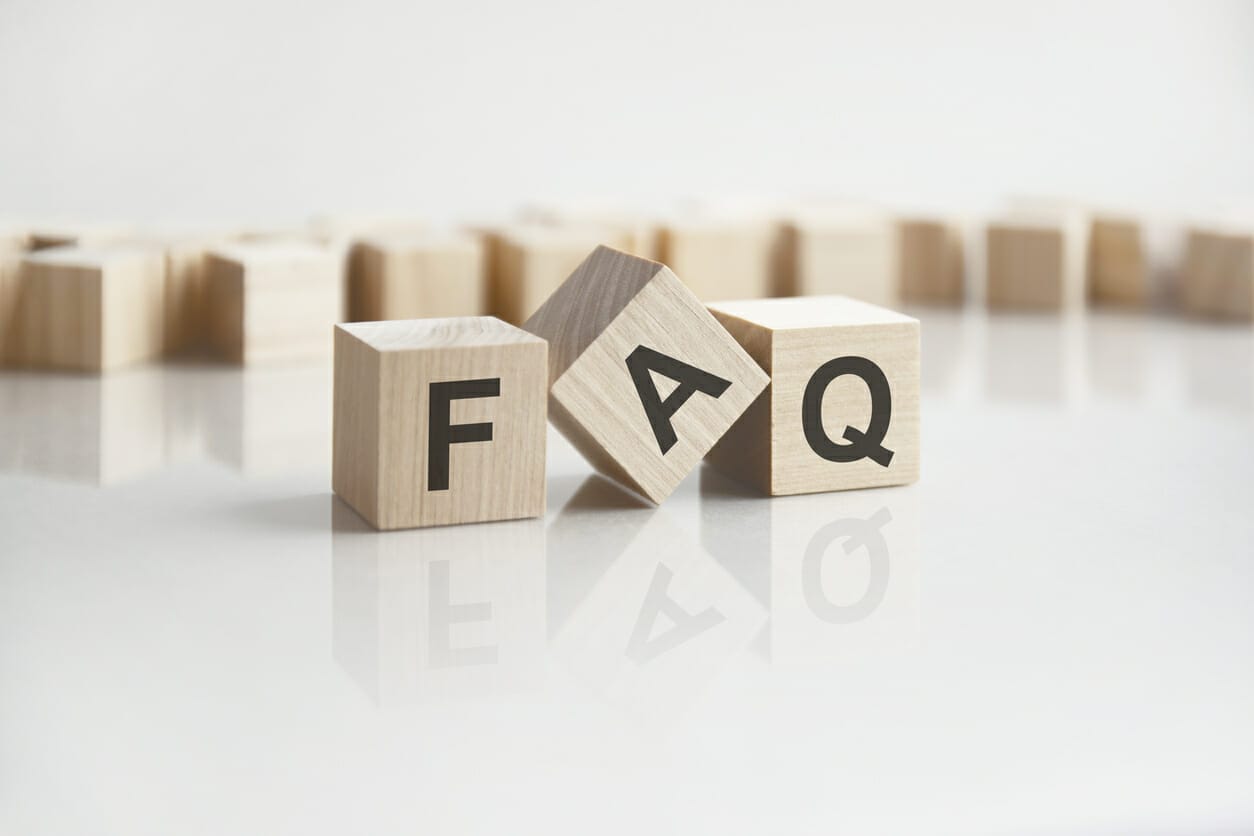
Frequently Asked Questions About Financial Assistance For Myelodysplastic Syndrome Patients
Q: I Don’t Have Insurance. How Can I Get Help Paying For my Treatments?
A: If you don’t have insurance, several options are still available for financial assistance with Myelodysplastic Syndrome (MDS) treatments. Depending on your income level and other factors, you may be eligible for government programs such as Medicaid or Medicare. You can also explore MDS-specific financial grants, general cancer financial assistance, and prescription assistance programs offered by pharmaceutical companies or non-profit organizations. Additionally, some hospitals and clinics offer financial assistance or payment plans for uninsured patients.
Q: I have Insurance, But my Treatments Are Not Covered. What Can I do?
A: If your insurance does not cover your Myelodysplastic Syndrome (MDS) treatments, several options are still available for financial assistance. You can appeal the insurance company’s decision or work with your healthcare provider to explore alternative treatment options covered by your insurance. Additionally, you can explore MDS-specific financial grants, general cancer financial assistance, and prescription assistance programs offered by pharmaceutical companies or non-profit organizations.
Q: How Can I Determine if I’m Eligible For Financial Assistance?
A: Eligibility requirements for financial assistance programs vary depending on the program. You can determine your eligibility by carefully reviewing each program’s requirements and application instructions. Some programs may require information such as income level, insurance status, and medical diagnosis. Gathering all necessary information and documentation before applying for financial assistance is important. You can also speak with a financial counselor or social worker at your healthcare provider’s office or hospital for assistance with determining your eligibility and applying for financial assistance programs.
In Conclusion
Myelodysplastic Syndrome (MDS) can be a medically and financially challenging diagnosis. However, several financial assistance options are available to help alleviate the financial burden of MDS treatments. It’s important to carefully research all available options and determine your eligibility for each program before applying. Contact us at American Life Fund today by completing our simple online form or give us a call at 877-658-1360 to learn how we provide financial assistance if you have been diagnosed with Myelodysplastic Syndrome.
